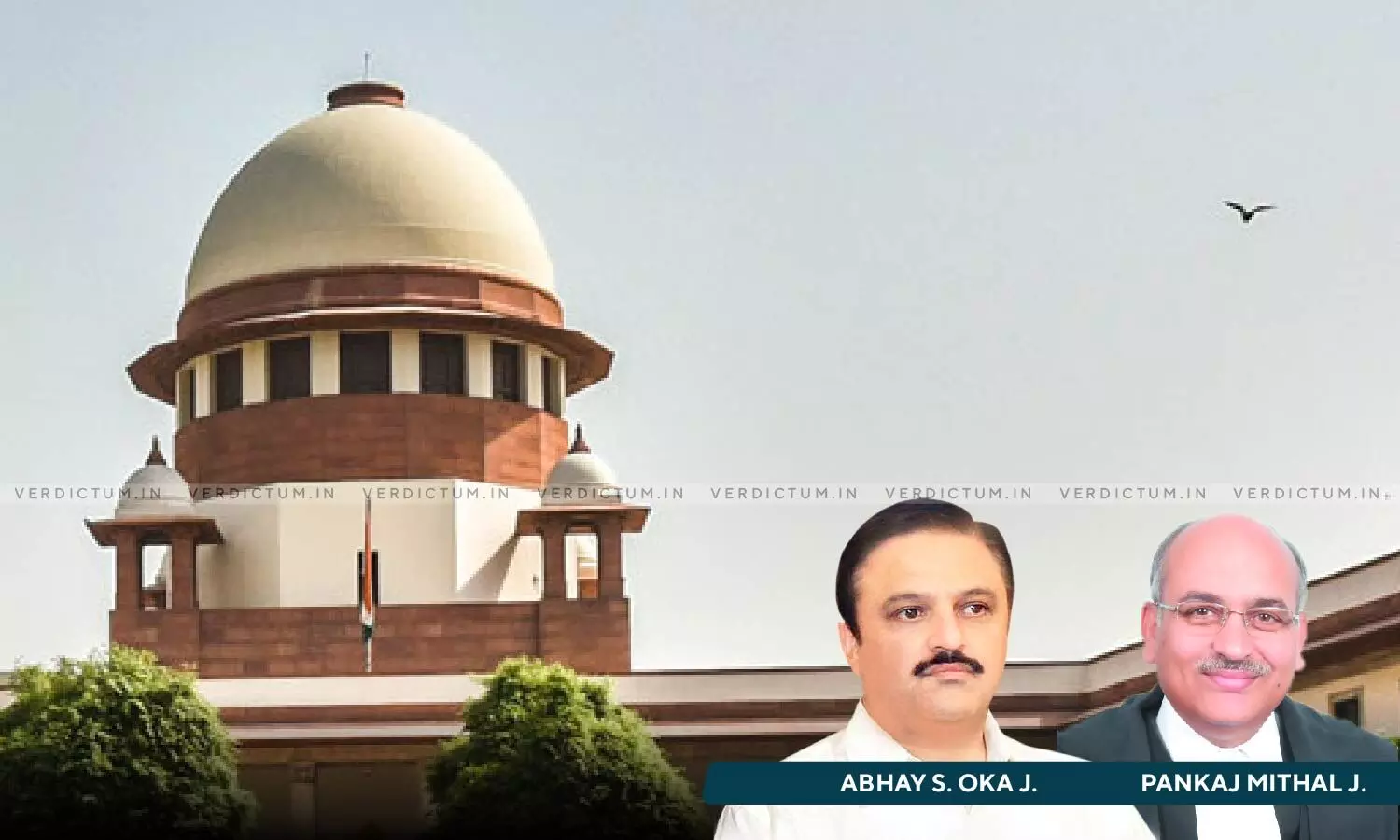
General Exception U/S 86 IPC Will Attract Only If Accused Was Incapacitated To Know And Understand His Actions Due To Intoxication: SC
 |
|The Supreme Court observed that, in order to avail general exception under Section 86 IPC, it must be proved that on account of the intoxication, the accused was incapacitated to know and understand his actions.
The court observed thus while it dismissed an appeal filed by an accused who was convicted in a murder case.
The Bench comprising Justice Abhay S. Oka and Justice Pankaj Mithal observed, “It may be true that the deceased may have been killed accidently by the appellant in the state of intoxication but there is no iota of evidence to establish that due to intoxication he was incapable of knowing the nature of his act or that the act which he was doing or likely to do was so dangerous so as to cause death of any person”.
Advocate Adolf Mathew appeared as Amicus Curie and Advocate Sakshi Kakkar appeared for the Respondents.
The Appellant was convicted of murder and sentenced to life imprisonment. The Appellant had appealed his conviction, contending that he did not intend to kill the deceased and that his death was accidental. The Appellant also argued that he was heavily intoxicated at the time of the incident and was not in a position to know what he was doing.
The Court framed the issue, “Whether the said offence is liable to be reduced to culpable homicide not amounting to murder falling under second part of Section 304 IPC in view of the fact that the appellant had no intention to kill the deceased as he had fired with the intention to settle his score with Mahendra with whom he had entered into a harsh argument”.
The Court noted that per the Doctrine of Transfer of Malice, if a person intends to commit an offense and causes the death of another person, even if that person was not the intended target, they will still be guilty of murder. The Bench observed that the malice (intent to harm) is transferred from the intended victim to the actual victim.
However, the Bench noted that if a person is intoxicated to the point of being incapable of understanding the nature of their actions, they will not be held liable for their actions under Section 86 of the Indian Penal Code. This is only applicable if the intoxication was administered to them against their will or without their knowledge. The Bench observed the two conditions that must be met to apply Section 86 IPC.
“In applying the above provision, the following twin conditions have to be satisfied. The first that the accused was administered a thing which intoxicated him without his knowledge or against his will. Secondly, the intoxication has to be of the level which incapacitated him of knowing the nature of the act committed or likely to be committed by him”, the Bench noted.
Additionally, the Bench noted that there was evidence to suggest that the Appellant was intoxicated at the time of the incident. However, there was no evidence to prove that he was so intoxicated that he was incapacitated from knowing what he was doing. However, there was evidence to suggest that he was able to walk properly and had gone 15 to 20 steps away from the place of the quarrel after it was settled to return and fire a shot. This suggests that he was mentally alert and was not incapacitated from knowing what he was doing and what would be its consequences. Therefore, the provision of Section 86 IPC would not be applicable and he would not be entitled to a reduction of sentence from 302 IPC to one falling under Part II of Section 304 IPC.
Accordingly, the Court dismissed the Appeal.
Cause Title: Nanhe v State Of UP (2023 INSC 1011)